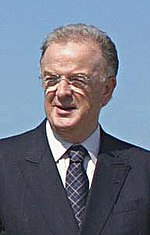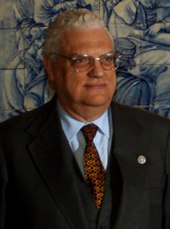| ||||||||||||||||||||||||||||||||||||||||||||||||||||||||||||||||||||||||||||||||
All 305 Portuguese municipalities and 4,260 Portuguese Parishes All 2,002 local government councils | ||||||||||||||||||||||||||||||||||||||||||||||||||||||||||||||||||||||||||||||||
|---|---|---|---|---|---|---|---|---|---|---|---|---|---|---|---|---|---|---|---|---|---|---|---|---|---|---|---|---|---|---|---|---|---|---|---|---|---|---|---|---|---|---|---|---|---|---|---|---|---|---|---|---|---|---|---|---|---|---|---|---|---|---|---|---|---|---|---|---|---|---|---|---|---|---|---|---|---|---|---|---|
| Turnout | 60.9% | |||||||||||||||||||||||||||||||||||||||||||||||||||||||||||||||||||||||||||||||
| ||||||||||||||||||||||||||||||||||||||||||||||||||||||||||||||||||||||||||||||||
Local elections were held in Portugal on 17 December 1989. The elections consisted of three separate elections in the 305 Portuguese municipalities, the election for the Municipal Chambers, another election for the Municipal Assembly and a last one for the lower-level Parish Assembly, whose winner is elected parish president. This last was held separately in the more than 4,200 parishes around the country.
Contents
- Electoral system
- Parties
- Results
- Municipal Councils
- Municipal Assemblies
- Parish Assemblies
- See also
- References
- External links
For the first time since democracy was restored, the center-left/left-wing parties won a nationwide local election. The Socialist Party won, also for the 1st time, the status of largest local party, a title the Socialists would hold on until 2001, and gained control in many big cities across the country, like Lisbon and Porto. [9] In Lisbon, the PS leader, Jorge Sampaio, in a coalition with CDU, defeated the PSD/CDS candidate, Marcelo Rebelo de Sousa, by a 49 to 42 percent margin. The Socialists had a net gain of 41 cities, and won important cities like Guimarães, Coimbra, Faro and Vila Nova de Gaia.
The Social Democrats (PSD), were the big losers of the elections. The party lost its status as the largest local party and suffered heavy losses across the country, particularly in the big cities. The PSD lost a total of 35 cities, although was able to increase its share of the vote to 35 percent. The results contrast with the landslide election victory the PSD won in the 1987 general elections. Many of Cavaco Silva's government policies such as privatizations, which was creating some unemployment, or the tensions with some workers unions, like the Police protests in April 1989, [10] may have had a negative effect on the PSD chances.
The Democratic Unity Coalition (CDU) gained 3 cities, compared with 1985, and maintained their control in the Alentejo area. Nonetheless, the Communist/Green coalition suffered a big drop in its share of vote, dropping 6 points to around 13 percent. The CDU was able to hold on to their bastions of Beja, Évora and Almada.
The Democratic and Social Centre (CDS), like PSD, had a very poor showing winning 20 cities, a drop of 7 cities. The party lost some important cities to either the PS or PSD, such as Póvoa de Varzim, Leiria and Viseu. At the same time, CDS made several coalitions with the PS in Azores and Madeira, and, together, the PS/CDS coalition won a combined total of 3 cities. Other smaller parties also made gains, like the UDP which gained Machico, Madeira islands, from the PSD
Turnout in these elections was lower compared with 4 years ago, with 60.9 percent of the electorate casting a ballot.




